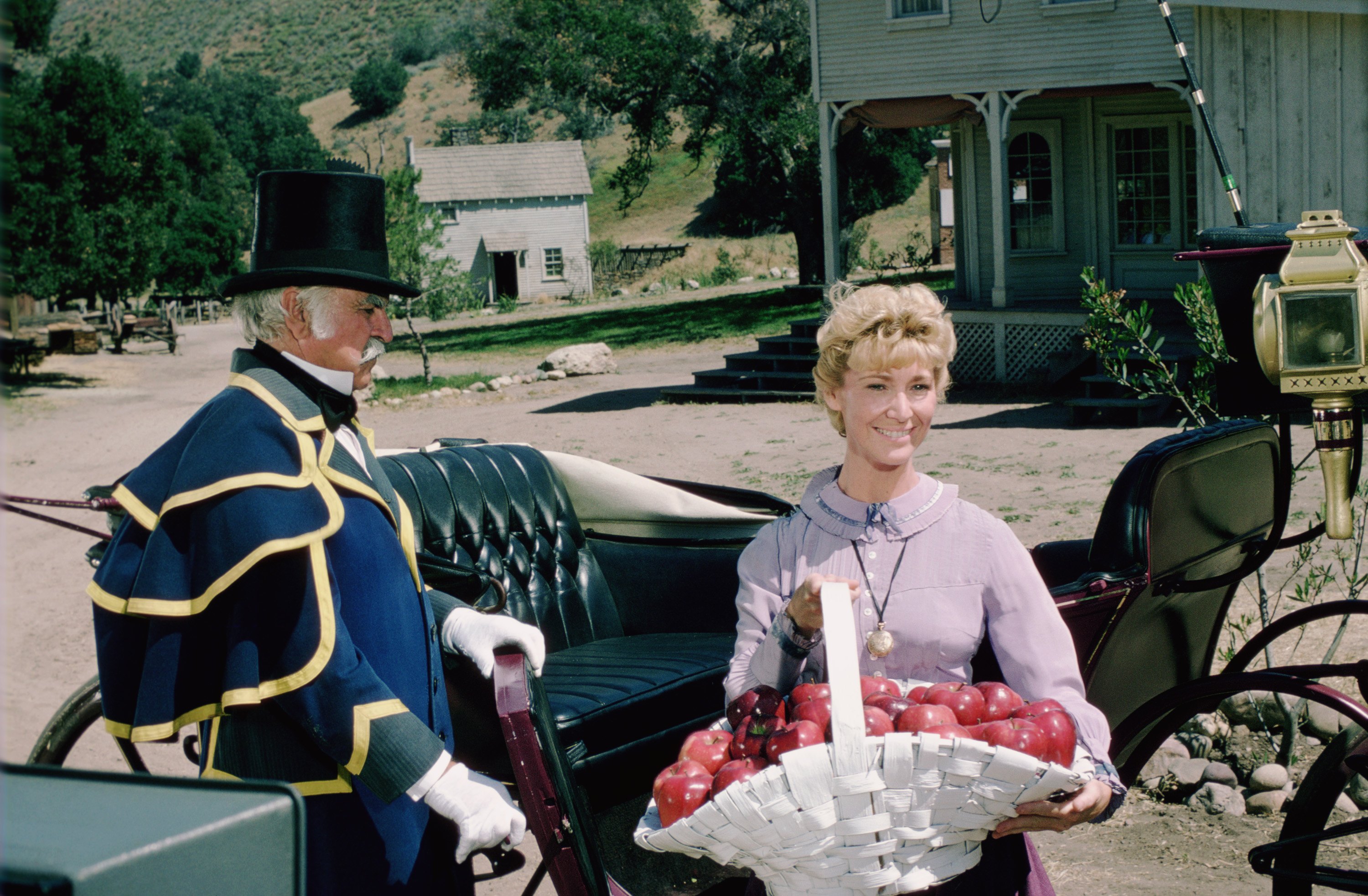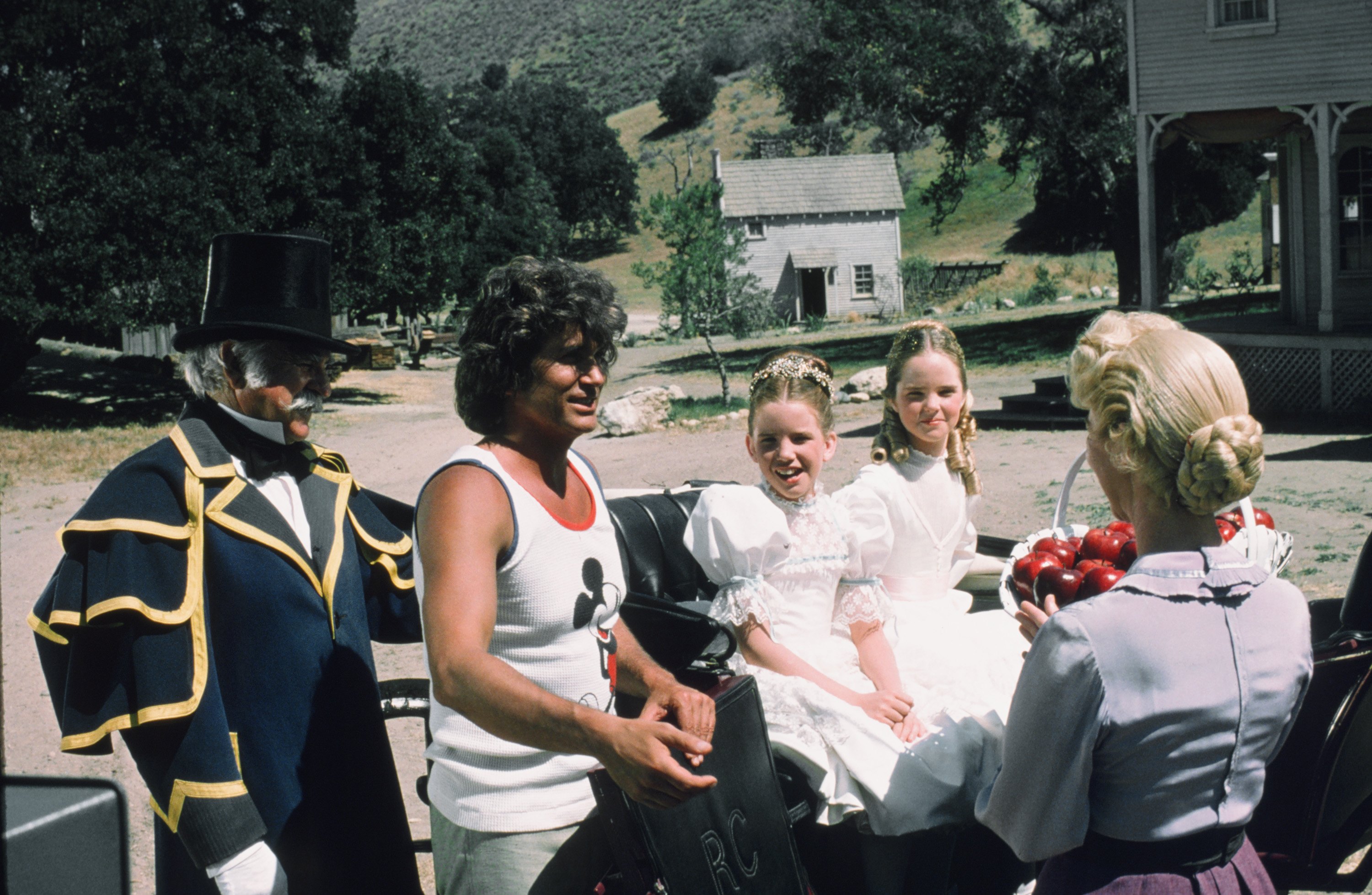This ‘Little House on the Prairie’ Star Recalled When Michael Landon Offered Her a ‘Roll in the Hay’
Michael Landon created Little House on the Prairie in 1974 after leaving the hit show Bonanza. Also serving as executive producer, frequent director, and central character Charles Ingalls, Landon assembled a cast from varying backgrounds to play his family and the townspeople of Walnut Grove.
Charlotte Stewart landed the role of Eva Beadle, the town’s wholesome school teacher. In her memoir, Stewart revealed that Landon once suggested some behind-the-scenes activity.

Michael Landon loved taking his shirt off
In her book Little House in the Hollywood Hills: A Bad Girl’s Guide to Becoming Miss Beadle, Mary X, and Me, Stewart wrote of Landon’s strong work ethic and contagious sense of humor. She also remarked that while he portrayed a humble farmer who was also a husband and father, Landon paid a good deal of attention to his appearance.
“He could be a bit vain,” Stewart commented. “The hairdressers were always at their wit’s end with what to do with Mike because he dyed his own hair at home – covering up the onset of gray with color out of a box. … And if you’ll notice… whenever Pa gets injured, it’s never the shins, it’s always his ribs. This necessitates the shirt coming off.”
Stewart also recalled an incident where Landon suggested some physical interactions that had nothing to do with life on the prairie.
“Mike did, just once, let me know that he was up for a roll in the hay,” the Little House alum wrote, “if I was interested.”
Miss Beadle stuck to her role
Stewart explained that alcohol could have possibly been a contributor to the unexpected proposition from Landon.
“It was the end of the day and I was gathering myself up to leave the set,” she remembered. “I could tell he’d been drinking. And this was a time in his life between marriages so he wasn’t breaking any rules; maybe he was just seeing what a quickie here and there would be like.”
Though she wasn’t offended by Landon’s overture, Stewart was surprised by his invitation since the two never had more than a working relationship.
“I don’t remember the exact words he used,” Stewart wrote. “It was specific enough to let me know what he had in mind and yet vague enough to let me wriggle out if I wished. I was shocked – there had been no lead-up, no hint in our past to suggest this was coming, no flirting. And it took what felt like a long time for my mind to process what exactly was happening.”
Michael Landon knew he wasn’t a ‘saint’
Stewart knew that mixing business with pleasure – especially with her boss – could only lead to problems.
“I liked Mike and I know Mike liked me,” she said. “He always called me ‘Beadle’ on the set, which I enjoyed. But we didn’t hang out. We didn’t socialize on weekends. Ever. … Sleeping with the boss wasn’t my idea of a good time and I’ve never regretted that choice, and I don’t believe he held it against me.”
The Little House alum chalked up Landon’s actions to being a product of the times.
“Mike – like all of us – was human,” Stewart said. “He worked in an industry in which sleeping around, at least in the 70s, was as remarkable as going out for ice cream. There was plenty of alcohol on the set and lots of guy talk. The fact that this only happened once is probably more noteworthy than the fact that it happened it all. Context being everything.”

She concluded her story adding that Landon had a realistic view of himself, and never claimed to be the idyllic persona he portrayed on television as Charles Ingalls.
“I would think that, rather than being remembered as a saint, Mike would rather be known for his incredible work, his work ethic, his friendships,” Stewart explained, “rather than being remembered for something false – that he lived some kind of idealized life that came with a halo.”


